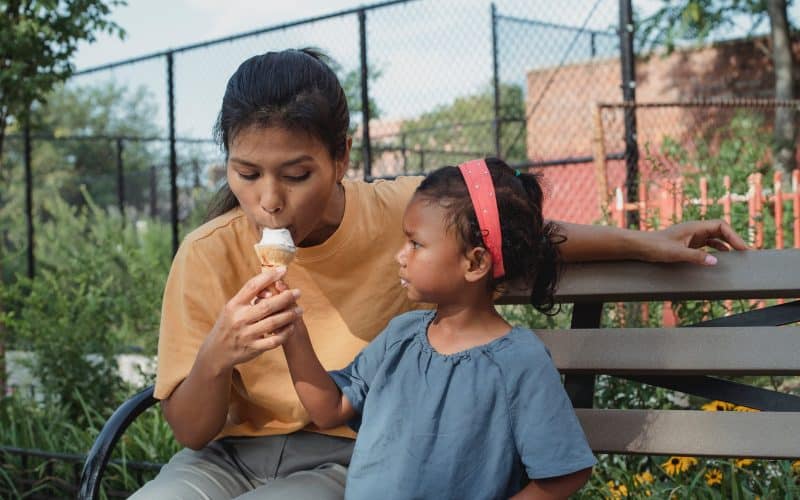Creating a secure bonding is a much talked about concern among new parents, but it’s actually more important for them to understand what it means.
Does your baby crave for more than merely missing your presence when you aren’t there?
Studies performed by a few eminent health research experts have supported some deep-rooted causes and far-reaching outcomes on this ground.
Both the social and reasoning skills of a child play a crucial role in securing his physical and mental health.
That’s one reason why it’s more important for the parents to create a secure bonding with their baby right from the very beginning.
The life of your child achieves a great start when you undertake a few initial steps towards establishing a strong bonding.
What Is Secure Bonding?
The emotional attachment between an adult and a child are often based on the strength of their physical bonding. A baby is mostly attached to its mother as she takes care of all its needs during the initial few months. However, a baby can also develop a strong bonding with others that it comes across more frequently.
When Does It Happen?
Inanimate objects aren’t preferred by newborns over human beings. Until they become three months of age, they would learn to distinguish between their loved ones.
At the same time, a bit of cuddling with strangers is also enough to keep them happy. By the time they turn 7 months old they’re able to show their inclination towards one individual over others and can become anxious when that person is away. It’s that phase of their life when they could even show their discomfort towards strangers.
The company of relatives and babysitters turn them free from various social bonds and makes them feel more independent once they’re nine months old. However, their world revolves around a single person who acquires the central position in driving their emotional reactions.
Can This Be Improved?
You may have taken the right attempts in strengthening the bonding with your child. You may convey a feeling of love to your child only by paying more attention to him and by responding to his non-verbal cues.
Your baby acquires a feeling of safety the more you extend support through cuddles and your eye contact.
Babysitters often find it tough to build a powerful bond with a child. A child misses a person with whom he can share a natural bond.
A pivotal role is played by the verbal and symbolic feedback delivered by a child. It’s naturally associated with a certain level of responsiveness reflected in a parent’s behavior.
A baby needs some time to break free from all attentive eyes. You may catch his signal when he avoids eye contact or tries to push you away. Besides all things, you’ll need to strike a balance between paying attention and letting him play on his own.
You’re bound to take pride in everything that your child achieves ever since his birth. A few of these steps are simple from the very first time he crawls, but you’re likely to derive that sense of pride and feel amazed.
That’s quite natural. He’s certainly going to develop much sooner if you interact with him in a subtle and attractive manner.
Your child is less likely to remain distressed when he experiences some secure attachment. He will be more prepared to venture into an unknown world once he acquires all social skills and feels more confident about mixing with strangers.
He should have the added comfort of falling back on your shoulders every time he experiences any difficulty. So, in a way, you’re playing a major role in building the much necessary attachment with your child.
The Mirror in Your Child
The initial developmental phase is truly important for a child’s upbringing as it reflects the changing pattern of his behavior. You can’t ignore it as a parent even after experiencing the slackened pace of the growth.
While judging the type of emotional attachment that you’re witnessing in your child, you must count upon his mental inclination as an important type of biosocial development. The actual strength of the bonding created between a child and his parents depends on this affinity.
The different forms of attachment developed between a child and its parents can be broadly classified among avoidant, anxious, disorganized, and secure types. Keeping with the pattern of interaction that your child prefers, you’ll gain control over your child’s attachment.
For instance, your child might just turn more anxious when you share more concern over his activities or pay more attention to it. Whenever his parents are always there by his side, he might feel more conscious.
Pretending to Be an Adult
Teenagers would find their parents urging them to spend more time by studying or socializing. On the contrary, infants achieve more guidance towards developing social skills for a brighter future.
Children nearing the age of one develop a cognitive capacity for pretending adult activities while imitating parents doing certain things like that of shopping or cooking.
This pretending act leads children through the adequate practice of adulthood and attempt in transforming imagination through all forms of socio-biological development.
Society wouldn’t develop in the absence of communication. The language abilities of infants below two years of age tend to grow rapidly while it’s rudimentary.
A fast development of an infant’s brain leaves a strong and positive impact on language abilities and helps him recognize all phonetic elements of his mother tongue. This, in turn, helps him comprehend the fundamental grammar rules of his mother tongue.
Apart from the language, the pace at which he acquires his language skills relies much on the sounds he hears frequently. This important social interactive tool gets mastered by your child the sooner you expose him to various structures, words, and sounds.









